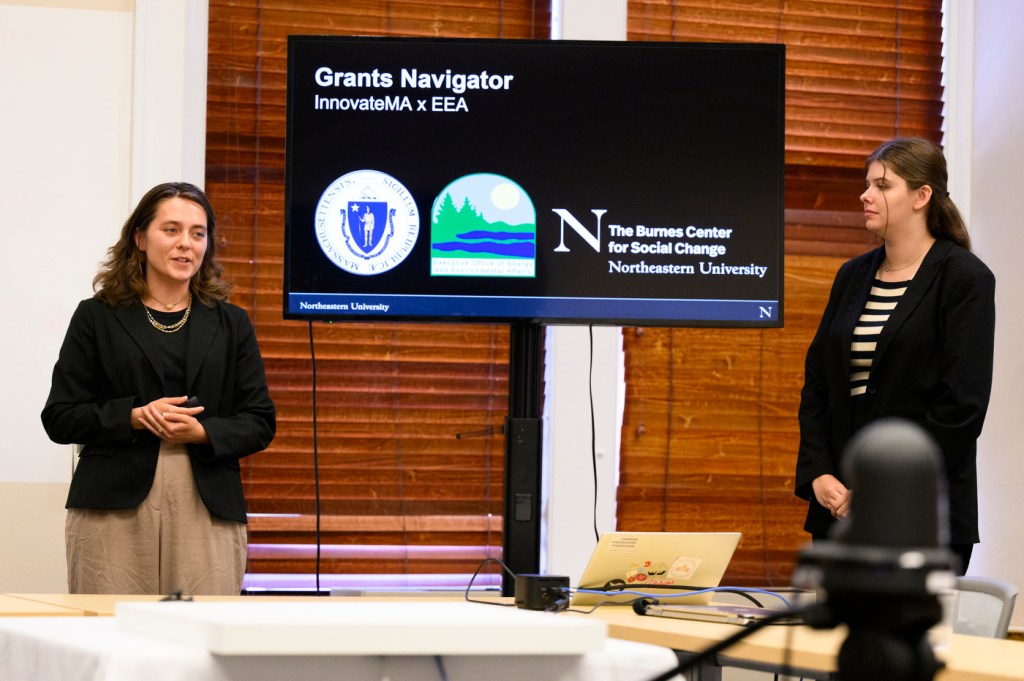New AI tool developed by Northeastern students connects farmers with environmental grants

After substantial flooding in 2023, Massachusetts’ Office of Energy and Environmental Affairs created a one-time grant program to help affected farmers.
But a grant program isn’t any good if no one can access it.
So two Northeastern University students created a navigation tool — powered by artificial intelligence — that consolidates information on grants offered by the EEA to make them easy to find.
“The core problem was that the EEA grant information is currently very decentralized,” says Diane Grant, a rising fourth-year student studying computer science and political science. “They have 85 different grant programs, most of them managed by one or two managers, and so, because of that, it’s very difficult to be able to find something unless you know exactly what to look for.”

Grant and Rachel Kahn, also a rising fourth-year student studying computer science and political science, are part of the AI for Impact Co-op Program run by Northeastern University’s Burnes Center for Social Change. The program places 10 students with state agencies to work full time on experiential AI projects for the social good.
The EEA was one of those agencies this spring.
The EEA seeks to protect, preserve and enhance the state’s environmental resources while ensuring a clean energy future through the stewardship of open space, protection of environmental resources and enhancement of clean energy.
Featured Posts
But the office has found that it needs to better meet constituents’ needs surrounding the grantmaking process.
The Northeastern students found that AI could help.
The tool the students created allows constituents — including businesses, municipalities, nonprofits and farmers — to search through essentially a database of grant information in order to best find appropriate grant opportunities.
The students hope that it will help constituents not only find available grants, but also help them determine their eligibility, understand grant requirements and more — as early in the process as possible.
“We would talk to people who said they got so far in the process just to learn there was money upfront that needed to be there,” Kahn says. “Now they just wasted all this time and they can’t even apply.”
The students said the experience taught them a lot about AI. Both said they didn’t have much experience with the tool going into the co-op, but they taught themselves “very quickly” and learned a lot about AI’s capability.
“Throughout this job, I’ve learned it’s not how AI can take your job,” Kahn says. “It’s how AI can help your job.”
Grant also found it exciting that the students were experiencing AI as it develops in real time.
“A lot of the problems and technical issues we were running into were issues that are being actively pursued and focused on by the industry right now,” Grant says. “It’s kind of amazing that it’s so fast moving, and we can be so fast moving that we’re running into those same issues as they come up.”
The students were also fast moving — they had a May 1 deadline to test their tool in order to accommodate planting season.
And — perhaps a little surprisingly — a third group was fast moving.
“People warned us that bureaucracy can be challenging sometimes and the way government functions is different from other entities you might have worked with before,” Grant says. “But our agencies were very nimble. They’re very excited about the technology, and I think it was a really strong example of how the government can adapt quickly.”











